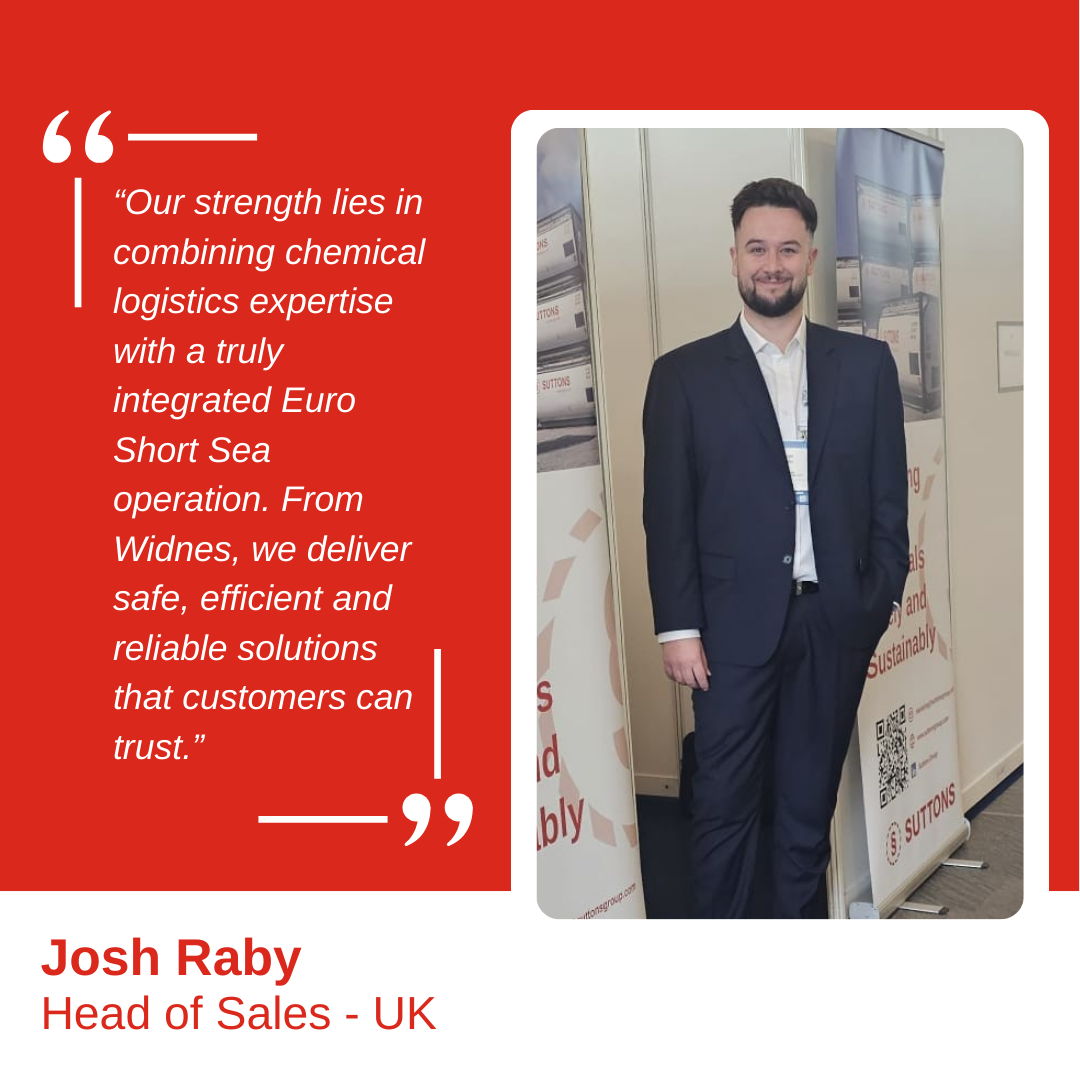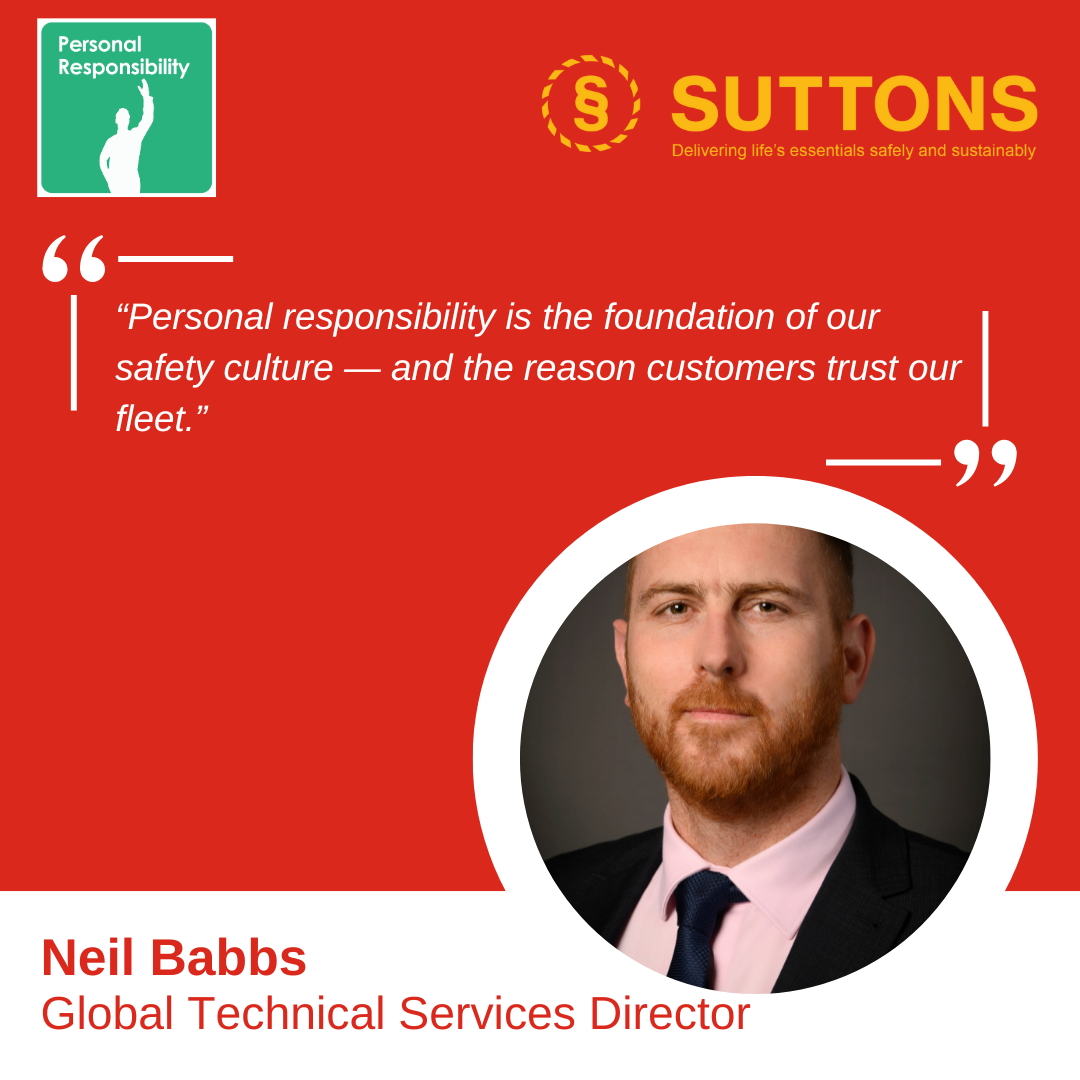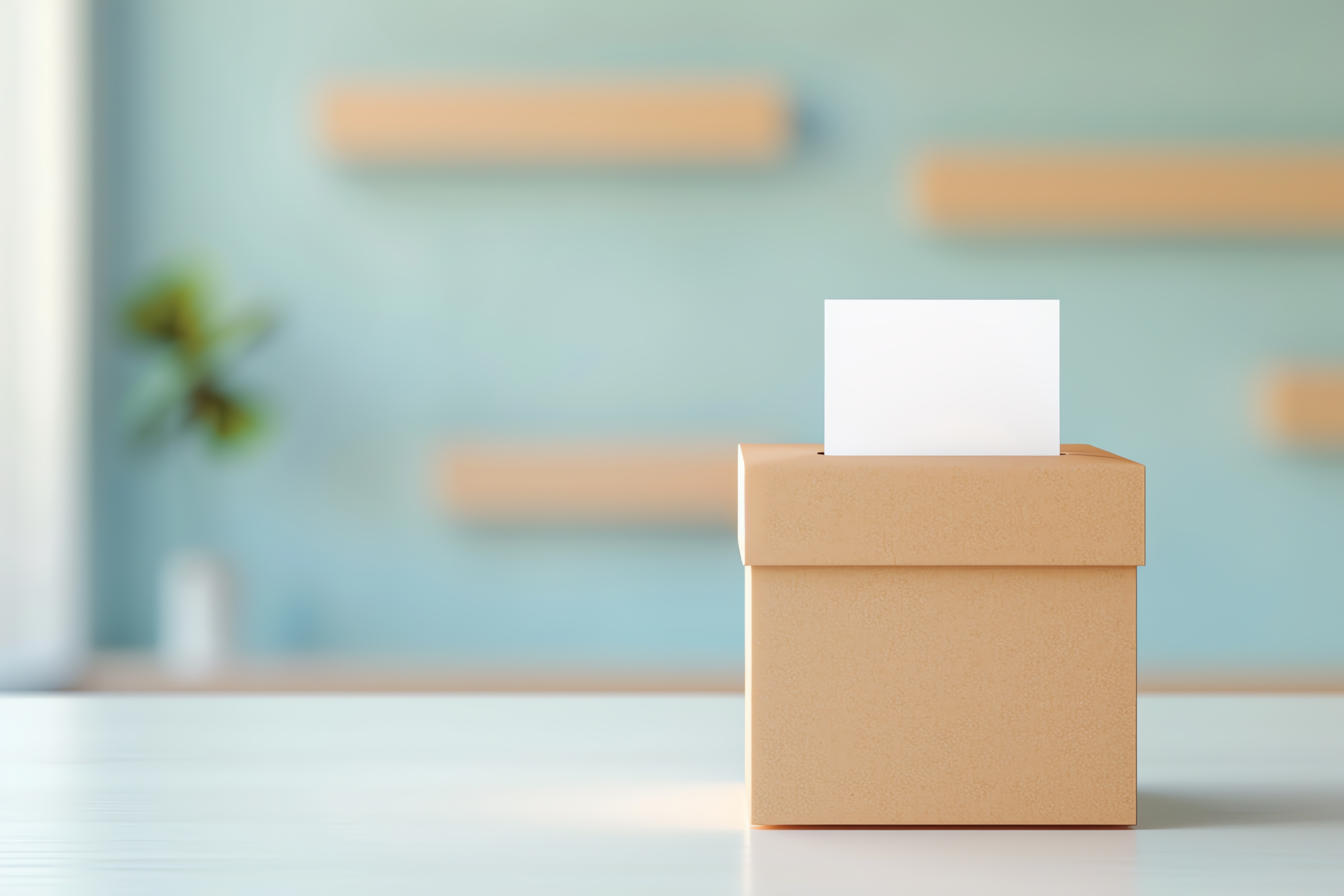All businesses produce some form of waste.
This waste can be harmful to the environment and to any living being or animal who comes into close contact with it.
While not all waste is hazardous, it still needs to be disposed of correctly. If it isn’t then there can be legal implications, resulting in huge fines or even prosecution.
Not to mention there is also a moral obligation that businesses should uphold when it comes to handling their waste.
It’s for these reasons that you should ensure you have the right bulk waste logistics company to handle this side of things.
In this article, we will dive into how commercial waste is handled, collected, disposed of and why Suttons Tankers should be your number one choice when it comes to commercial waste collection.
What is commercial waste collection?
Commercial waste collection is the process of gathering and disposing of waste generated by businesses, institutions, and non-residential entities.
It encompasses a diverse range of materials, including paper, plastics, glass, hazardous waste, and more, which vary according to the specific activities of each establishment.
Although, at Suttons Tankers we deal with liquid waste.
This essential service is typically provided by waste management companies, such as ourselves, or municipal authorities, with a focus on maintaining cleanliness, adhering to environmental regulations, and promoting sustainable waste practices.
Commercial waste collection involves waste segregation, specialised waste containers, compliance with local regulations, recycling efforts, and proper disposal methods.
These all collectively contribute to the responsible management of waste generated by the commercial sector.
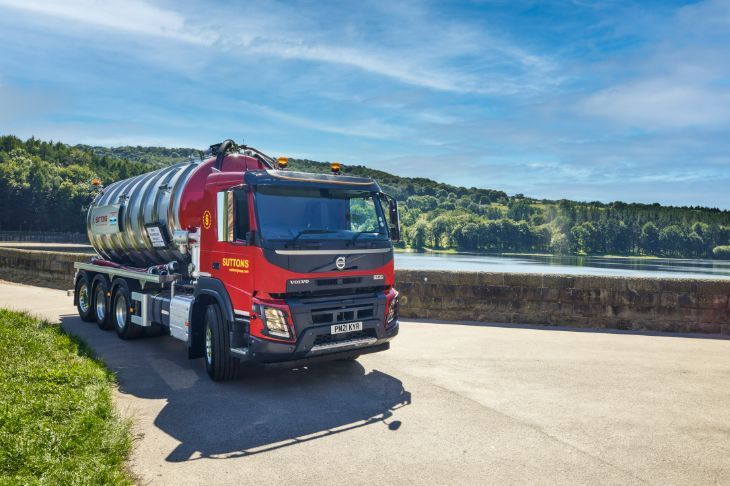
What are the different types of commercial waste?
Commercial waste typically includes a wide range of materials, such as paper, cardboard, plastics, glass, food waste, packaging materials, hazardous waste, and more, depending on the nature of the business or organisation.
With our focus on bulk liquid waste transport, our main contracts consist of companies in the waste and wastewater sectors.
Other common waste transportation services we offer include:
- Sewage.
- Biosolid sludge.
- Chemical waste
- Waste oil.
- Waste fuel.
- Waste chemicals.
- And more.
How do you deal with commercial waste?
As a business, dealing with your commercial waste is vitally important. Especially when it comes to liquid waste.
Proper disposal and management of commercial waste not only helps protect the environment but also ensures compliance with local regulations.
Situations such as the one that arose just off the Lancashire coast back in June are a prime example of how important the correct handling of waste is.
In this instance, untreated raw sewage leaked from a United Utilities treatment centre. Thanks to the hard work of our team we managed to extract more than 10 million litres of raw sewage from entering the sea.
As a business, there are steps that you need to be taking with your commercial waste, these include the following:
Assessing Waste
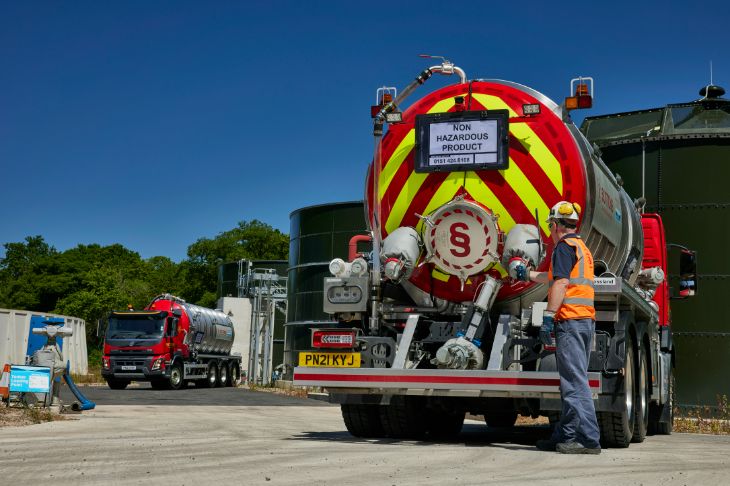
Businesses produce different types of waste depending on the nature of their business.
If you look at a business that is situated in an office block then generally their waste will consist of paper, cardboard, ink cartridges etc.
If you compare this with an industrial business that manufactures and distributes cleaning chemicals then their commercial waste will consist of hazardous chemical waste.
A huge difference when it comes to storage and handling waste.
As a business, you will need to follow the government guidelines on waste. This information provides further information in support of the implementation of the waste planning policy.
The waste planning authority (generally the county council) is responsible for waste development plans.
Their scope includes waste water management as well as the storage of waste.
Waste planning authorities are responsible for determining all waste development except:
- Wastewater treatment plants with a capacity to exceed a population equivalent of 500,000.
- Facilities to transfer or store wastewater facilities if the capacity for storage of wastewater exceeds 350,000 cubic metres.
Liquid Waste Segregation
Segregating liquid waste is an important part of responsible waste management, especially in commercial and industrial settings where various types of liquid waste may be generated.
The UK government’s guidance on hazardous waste segregation and mixing states that mixing hazardous waste is prohibited.
They suggest that you must not mix:
- A hazardous waste with non-hazardous waste.
- A hazardous waste with a non-waste.
- Different types (categories) of hazardous waste with each other.
- Waste oils with different characteristics.
If you wish to mix hazardous waste, it must be specifically authorised by your environmental permit and be done using the best available technique.
Proper segregation helps ensure that different types of liquid waste are handled, treated, and disposed of appropriately.
Here’s how to segregate liquid waste effectively:
Before you can segregate liquid waste, you need to identify the different types of liquid waste streams generated by your business. This can include:
- Non-hazardous liquid waste – wastewater from sinks and toilets.
- Hazardous liquid waste – chemicals, solvents, oils, and other potentially harmful substances.
- Specialised liquid waste – medical or pharmaceutical waste, radioactive materials, or biological waste.
You will also need to clearly label containers for each type of liquid waste and use appropriate colour-coding and hazard symbols to indicate the nature of the waste.
Use containers that are designed to hold liquid waste safely. These containers should be leak-proof, durable, and resistant to chemical reactions with the waste.
Ensure that containers are properly sealed to prevent spills or leaks during storage and transport.
Hazardous Waste Management
Hazardous waste management refers to the responsible handling, storage, treatment, transportation, and disposal of waste materials that pose a significant threat to human health and the environment due to their toxicity, reactivity, flammability, or other hazardous characteristics.
Proper hazardous waste management is essential to protect public health, minimise environmental contamination, and comply with regulatory requirements.
Hazardous waste can be classified when it contains substances that harm human life or the environment, according to the HSE (Health and Safety Executive).
37.2 million tonnes of waste was generated by businesses in England in 2018. This was an increase of 1.1 million tonnes from 2017, according to the UK statistics on waste.
The waste hierarchy, often represented as a pyramid or ladder, is a framework for managing and prioritising waste and resource management strategies in an environmentally sustainable way.
It ranks various waste management options from the most preferred and environmentally friendly methods to the least preferred.
The waste hierarchy is designed to guide decision-making and promote the reduction of waste generation and the efficient use of resources.
The typical stages in the waste hierarchy, from top to bottom, are as follows:
- Prevention – The most preferred and environmentally friendly approach is to prevent or minimise waste generation at the source. This involves reducing the amount of waste generated through measures such as product design improvements, process changes, and consumer education.
- Preparing for Reuse – Reusing items or materials is the second-best option after prevention. It involves using a product or material again without significant processing or modification.
- Recycling – Recycling is the process of collecting, sorting, and processing waste materials to manufacture new products or materials.
- Other Recovery – If waste cannot be prevented, reused, or recycled, the next option is energy recovery. This involves converting waste into energy through incineration or other thermal processes.
- Disposal – Landfilling and incineration are the least preferred options in the waste hierarchy. Waste is disposed of in landfills or incinerated when no other more sustainable options are available.
Waste Collection and Disposal
When your waste is managed, segregated and stored correctly it will be time to get it collected and appropriately disposed of.
This stage of the waste management process is crucial as there is potential for leakages and spillages of liquid waste into the environment.
That is why it is always prudent to call in the help of experts who know what they are doing. The collection and disposal of commercial waste should not be taken lightly.
Suttons Tankers is a family-owned business who have been involved in the transportation of many materials, including liquid waste, for almost 100 years.
We have an expansive waste supply chain network in the UK. It’s a network that is spearheaded by our top-of-the-range fleet and staff who are trained to the highest of standards.
Commercial Waste Collection with Sutton Tankers
Commercial waste management and collection is made up of many different facets.
What’s important is the health and safety of staff, the general public and the environment when it comes to dealing with liquid waste and other types of hazardous waste.
That is precisely why ‘Safety first’ is one of our five core values at Suttons Tankers.
As well as being industry leaders when it comes to safety, our fleet size is also unmatched.
This means we can collect commercial waste as safely and efficiently as possible through bespoke solutions to suit our customers.
Please reach out to us today if you would like to know more about changing waste logistics providers for your business.
We have a proven track record when it comes to change of management and TUPE regulations, meaning a smoother transition should you wish to make the switch.


